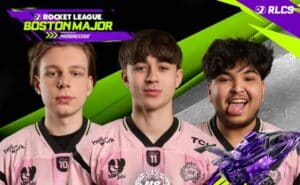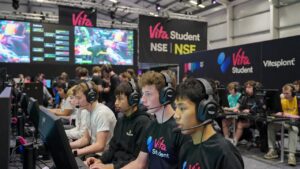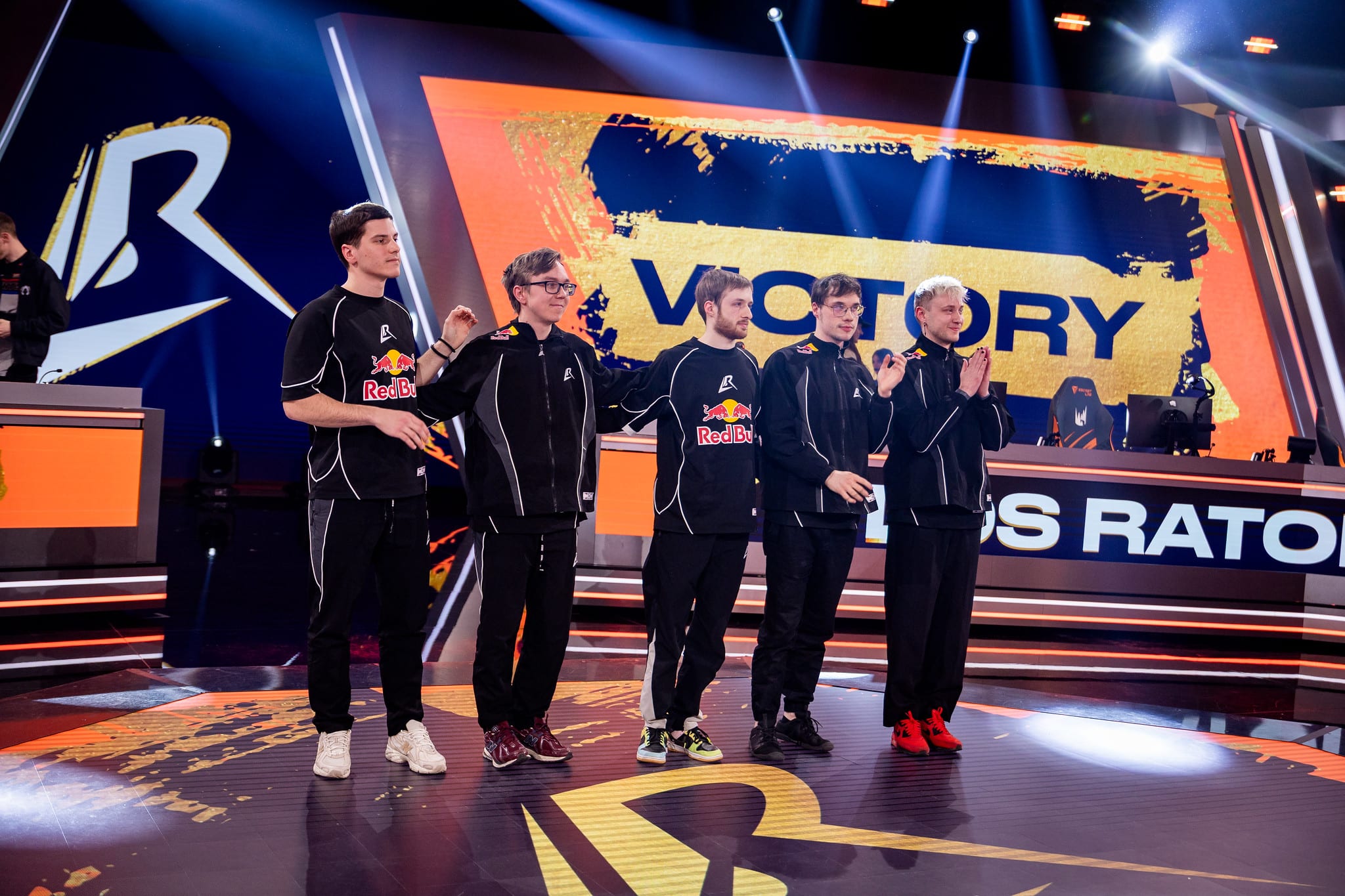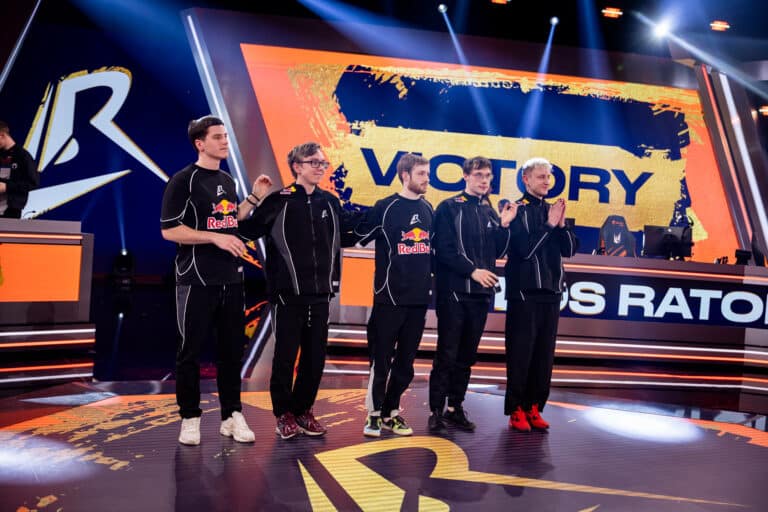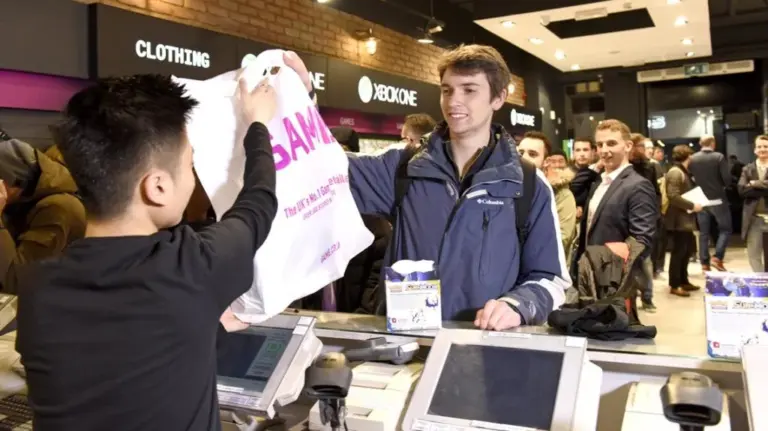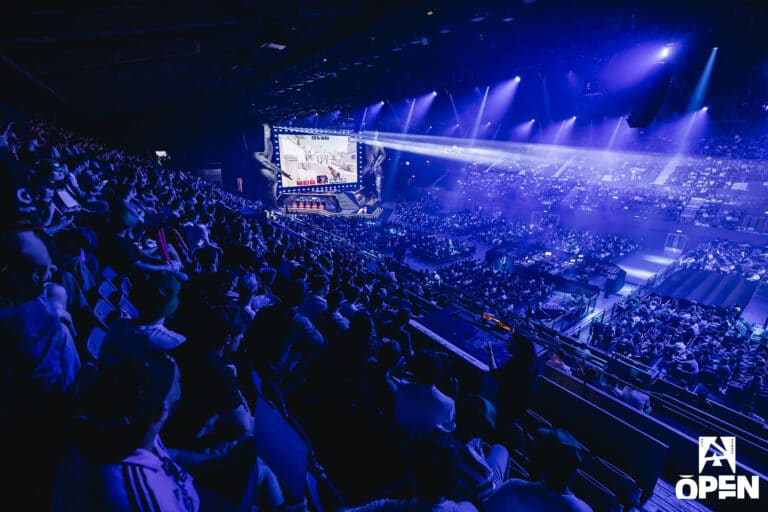The Team Falcons Cologne crash out: Analysing CS’ Hail Mary from the perspective of a fence parable
Hannah Marie ZT, Senior Editor
Last Updated: 30/07/2025
The promised epic Team Falcons Cologne victory with raw talent Maksim ‘kyousuke’ Lukin at the helm fell far short of expectations. Echoing their bitterly disappointing BLAST Austin Major performance, they crashed out of the competition in the Group Stage.
Something is fundamentally wrong with Team Falcons’ approach to building a Counter-Strike roster.
Since entering the Tier One scene, they have consistently faced criticism for throwing money at superstar players, bringing them on board, but then quickly ditching them for a new model. They have almost as many lineup changes as they have had months of Tier One competition.
There is no smoke without fire, but what exactly is it about their approach that is causing them to fall short every time?
From Austin to Cologne: Examining Team Falcons’ most recent defeats
Both of Team Falcons’ most recent tournament performances ended in disappointment. The Austin Major came to a devastating conclusion for the team in Stage 2. They only played in four games, three of which were losses.
MIBR were the final nail in the Falcons’ coffin, resulting in their early elimination.
Crushing defeat and the presence of some obstacle to success that they couldn’t quite identify seemed to cause panic, leading to rash decisions.
Between the Austin Major and IEM Cologne, they made a controversial roster change. Legacy Counter-Strike player and beloved icon Emil ‘Magisk’ Reif was benched in favour of new signing kyousuke.
Raw, young talent plucked straight from the Team Spirit Academy roster, kyousuke feels like the team’s Hail Mary. A pure, unspoiled saint sent from Russia to deliver the roster from their sins and set them on the path to salvation in Cologne’s cathedral.
However, their religious faith in a new holy icon has been misguided worship of a false idol.
Of course, Counter-Strike has no gods. There are only students who dedicate their lives to the art of smoke line-ups and recoil patterns.
As with the Austin Major, they were unable to even interact with a top-ranked team without a crushing loss at IEM Cologne. The sole difference was the standout performance from kyousuke.
This raises an important question. Clearly, kyousuke can play good Counter-Strike. Why has he not been the saviour Falcons thought he would be?
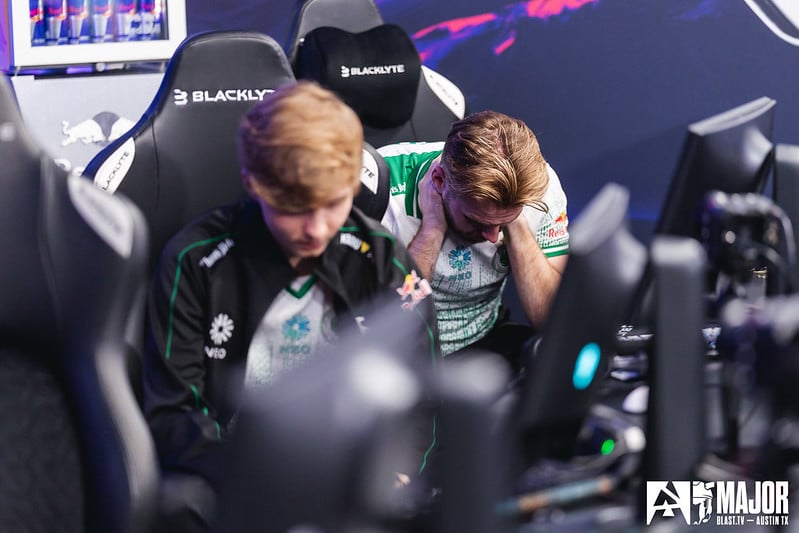
Praying to kyousuke and his Hail Mary status
Right to the end of the Team Falcons Cologne dream, kyousuke was consistently praised for his efforts in-game. Casters repeatedly noted that he was carrying his teammates, and from the perspective of viewers, it certainly seemed to be the case.
Even to the end of their third and final game, a best-of-three showdown against Furia, when casters expressed that there was “absolutely no doubt” that the pressure was getting to Falcons, they weren’t referring to kyousuke. He still performed.
At the end of the tournament, he finished with a rating of 1.39.
Even his teammate, Nikola “NiKo” Kovač, admitted in a post-match interview that “kyousuke kept us alive and was amazing, it just sucks we couldn’t help him on the last map.” Niko’s rating in the game against Furia was a mere 0.69.
Niko faces no shortage of criticism over how he performed on an individual level. There were some moments during Falcons’ Furia freefall where he seemed to swing with all the power and grace of a drunk snail counting down from ten towards anaesthesia.
He had some great moments, but they were, obviously, only momentary.
another embarrassing performance from Falcons (NiKo and m0NESY in particular AGAIN) despite another amazing performance by kyosuke. if i was zonic i might kms having to watch my team of #2 AWP, #1 rifler of all-time, drag down a donk-like prospect popping off
— methadone Hound 🐶🐾 ΘΔ& 💜👁 (@DeadnamedAtHome) July 28, 2025
Stellar and slow performances aside, it was teamwork that exposed the foundational flaw of the Falcons. Even when entering a bombsite with heavy coordinated utility, they seemed to fall apart at the seams.
What exactly is disjointed in their roster? Well, you can’t expect five players to perform flawlessly as a unit when the threat of roster change is consistently hovering over their shoulders.
Something is being torn down and replaced repeatedly within the organisation, without an investigation into why it is considered replaceable.
Team Falcons and Chesterton’s Fence
As demonstrated by Richard Lewis, parables can be extremely useful in understanding the complexities of esports.
There is an old English parable created by writer G.K. Chesterton that is perhaps more relevant to Team Falcons’ Counter-Strike efforts than they are aware.
The “Chesterton’s Fence” parable is as follows:
If you see a fence in a field and you have no idea why the fence is there, you should never immediately take it down. Instead, you must try to understand why it was placed there in the first place.
There may be something that the fence is trying to keep in or out, or it might serve a purpose relating to the land it was placed on. If you remove the fence without understanding its function, the results can be incredibly harmful.
Since committing to building a Tier One Counter-Strike roster, Team Falcons have rotated a total of 19 players and coaches through the team via signings, benchings, or loans. That’s almost as many lineup changes as they have had months of Tier One competition.
Such quick changes leave no time for investigating the cause of an obstacle or determining if its removal will trigger an avalanche of worrisome consequences.
So does throwing money at Chesterton’s Fence fix anything?
When you put it this way, the situation seems even more ridiculous.
If there is a fence of unknown consequence in the field, do you tear it down and pay big bucks to build an entirely new fence, with a different shape and material, in its place? Especially when you still don’t know the fence’s original purpose?
There's something genuinely sad about Falcons hitting the wall over and over again, despite constantly trying to make it work in CS.
— Michal (@NavyL0L) July 28, 2025
Regardless of what some might think about the org, it's clear they actually want to compete at the top and win, but somehow it just ain't it.
Perhaps the issue with a thick metal fence is that it is disrupting a view from the farmhouse. But it turns out that it is also keeping a strong bull at a safe distance. Do you spend an obscene amount of money on an ornate glass fence to get a better view, which the bull can then smash down?
When you look closely, it becomes clear that this is exactly what Team Falcons is doing with their Counter-Strike roster. Constant rebuilding is costing a lot of money. It also may be an attempt to tear down and replace obstacles or challenges without understanding their source.
Shrewd observations from Counter-Strike casters while witnessing the final pieces of the cookie crumble picked out this attitude with brutal precision. As the final rounds closed in, casters note, “They say you get what you pay for. This team proves, maybe that’s not true.”
Then, when the match ended, “Will someone please find this team one more superstar?”
Counter-Strike’s competitive community has come to expect Falcons to throw money at their problems, repeatedly tearing down their roster. Seemingly, there is also no understanding of the consequences.
Although their CS2 roster has struggled, they do appear to have found success in other esports scenes. They may benefit from examining the differences between their approach to Counter-Strike compared to Dota 2, for example.
They have a promising young player in the form of kyousuke. Perhaps his earnest efforts to keep the Falcons afloat in Cologne will finally prompt the team to re-evaluate.
To progress, the Falcons must discover why they are hitting so many fences in the grass rather than simply storming through the battlefield, banknotes in hand.
Hannah Marie ZT, Senior Editor
Hannah is a journalist specialising in the esports, gaming, and technology sectors. Working for outlets such as Dot Esports, Esports Insider, and of course ENUK, she has developed a love for wider esports, Apex Legends, and advocating for women's esports initiatives. You may have seen her at various esports and gaming events, including ALGS LANs, ESI London, EGX, and watch parties.
Stay Updated with the Latest News
Get the most important stories delivered straight to your Google News feed — timely and reliable





From breaking news and in-depth match analysis to exclusive interviews and behind-the-scenes content, we bring you the stories that shape the esports scene.
Monthly Visitors
User Satisfaction
Years experience
Latest Counter-Strike 2
